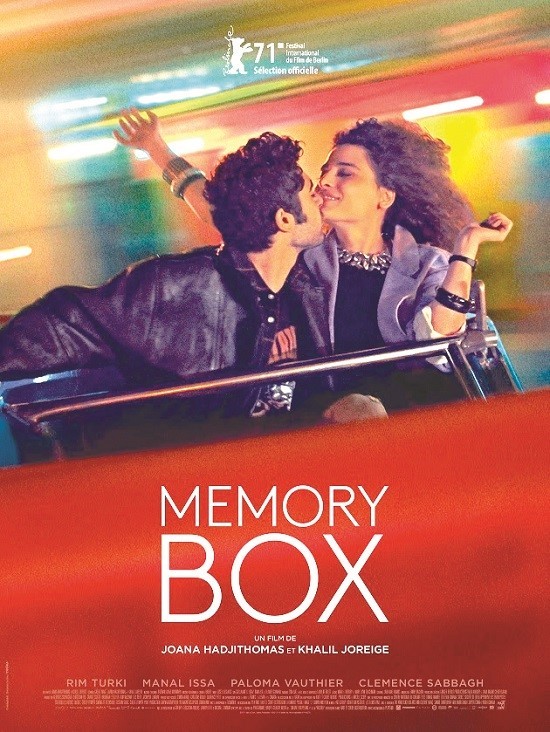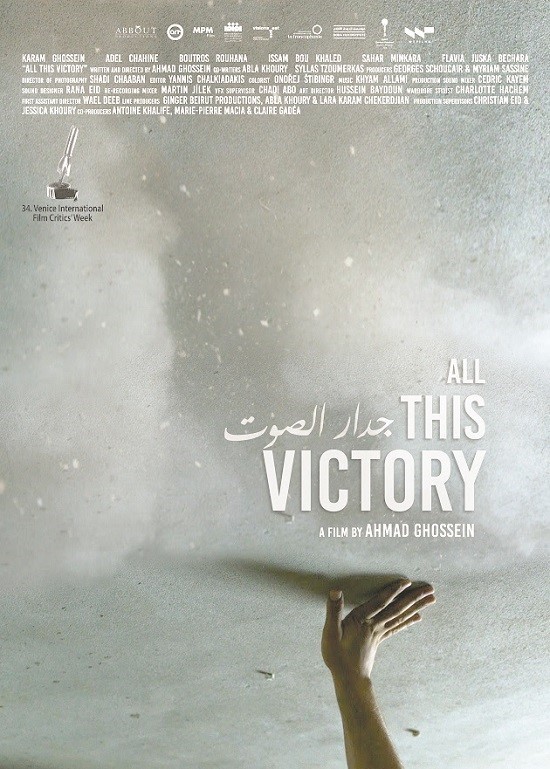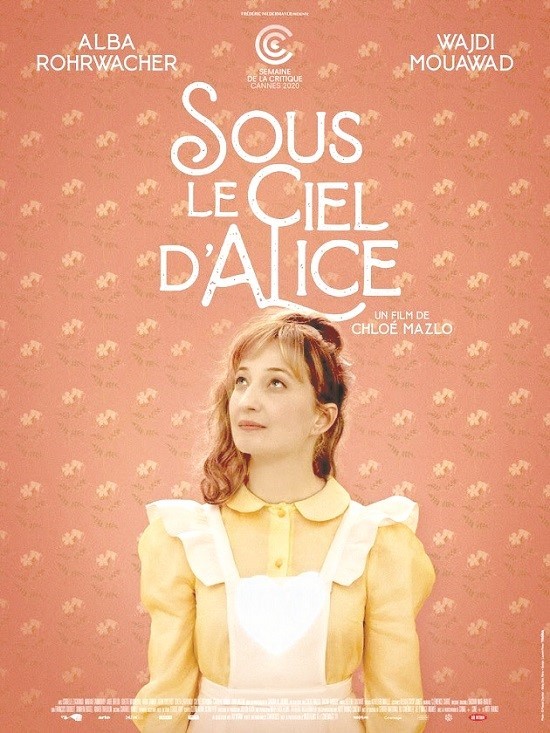Starting today, the Lebanese Film
Days will screen selected films exploring stories of war and social life in the
country.
The
Royal Film Commission organizes
the event, which starts its first film activities this year, for three days;
screenings is held at Rainbow Theater.
اضافة اعلان
The selected films include “Skies of
Lebanon”, by Chloé Mazlo, “
All This Victory”, by Ahmad Ghossein, who will
attend the screening, and “
Memory Box”, by Joana Hadjithomas and Khalil
Joreige.
 Memory Box. (Photos: IMDB)
Memory Box. (Photos: IMDB)
These three films tackle wars that
ravaged the country, including the civil war, and the war between Hezbollah and
Israel. Action happens in different timelines: the 1950s, 2006 and 1980s. Each film
has its own style and narrative, each tells a story that will linger in one’s
mind and touch one’s heart.
Skies of Lebanon – a tragicomic
story of Lebanon
It is a colorful and poetic story that intertwines family
history and national history to denounce the absurdity of war.
Combining live action shots and
animation, this chronicle of a Beirut family retraces the festive atmosphere
before the civil war, and the explosion of the conflict. This marvelous Sous le
ciel d'Alice (original title) film, is the first feature by Franco-Lebanese
filmmaker Mazlo.
Mazlo, who studied graphic design at
the Arts Decoratifs School in Strasbourg, seized on the family album, and especially
the fate of her grandmother Alice (Alba Rohrwacher), of Swiss origin, who
decided, in the 1950s, to leave the family nest for a job as a nurse in Beirut.
Very quickly, the astonished
spectator is confronted with a patchwork of images mixing real shots and stop
motion animation. The young years of Alice, in the green Helvetian pastures,
take on the naïve air of Heidi in the mountains before she bids farewell to her
parents and arrives in a city bathed in light, Beirut, like an Eden.
 All This Victory. (Photos: IMDB)
Poetic images
All This Victory. (Photos: IMDB)
Poetic images
Alice is just beginning to discover
the delights of cardamom coffee when she meets Joseph Kmar (director Wajdi
Mouawad), a soft-spoken scholarly physicist dreaming of sending a Lebanese
person into space. Around this lunar couple gravitate more extroverted and
solar characters. Over the years, the grain of the Super-16 film brings the
image closer to the stereotypical family photo of the 1970s. The Kmar family is
alive and well, and their door is always open. Even in the darkest hours, the
large apartment remains the home port of friends, always cheerful, even in
minor mode.
All the singularity of the film is
based on the rarity of its animated images that we discover in the course of a
shot, without expecting it, like a pearl encrusted in an oyster. These little poetic
images are linked to the tender and burlesque atmosphere of this solar and
subdued film. Jumping with agility from one square to another, like hopscotch,
Sous le ciel d'Alice thwarts the pitfalls of the family fresco (pathos ringing
and stumbling or, conversely, joy too good to be true) and crosses the “big
story” through sensations.
 Sous le ciel d'Alice.(Photos: IMDB)
Sous le ciel d'Alice.(Photos: IMDB)
The director skilfully crosses the
different cinematographic techniques, infuses tenderness and naïvete in the
heart of the violent subject that is war.
At first, the story mischievously
depicts a time of recklessness, a country where the inhabitants take pleasure
in receiving each other, where each meal is a feast, where the material
conditions, sometimes difficult, in no way affect the joy to live on a people
who are never discouraged and always ready to help each other.
At the heart of a colorful and
fanciful staging, in the first part, animated images and real views alternate,
thus maintaining at a distance a reality, which, too focused, would harm the
atmosphere of innocence and assumed lightness.
Allegorical differences gradually
diminish when the conflict starts, marking the disenchantment of characters
caught in the turmoil of history. Yet, here again the horror is kept at bay.
The choice of using Super 16 film, whose grain gives the decor a vaporous
appearance, softens features and feelings. Love can be guessed, struggles are
danced while, disregarding all geopolitical or religious questions, the
combatants merge to the rhythm of plans imbued with delicate poetry, far from
any denouncing effect, transforming this fratricidal madness into an immense
fresco of warm humanity.
But ultimately, this picture of
shift and restraint would be incomplete without the masterful presence of the
lunar and tenderly modest couple formed by Alba Rohrwacher (Alice) and Wajdi
Mouawad (Joseph). The gentleness that emanates from them creates a peaceful
atmosphere and alleviates the dramatic circumstances in which they are
struggling.
A look or an attitude, much better
than words, is enough for them to render a whole range of emotions. Surrounded
by a slew of solar secondary characters and with well-defined characters, they
participate in the empathy that one feels for this explosive and endearing
family.
If 40 years later one can regret
that this country is still in the grip of the same upheavals, one can rejoice
that one of its ambassadors has the talent to speak of her eternal heartbreaks
with so much kindness.
The film received a Special Mention
in the Arab feature-length narrative films category at the 2nd Amman
International Film Festival – Awal Film.
It was also nominated for the
Lumiere Awards for Best First Film and the Golden Gate Award for New Director
at San Francisco International Film Festival.
Read more Entertainment



